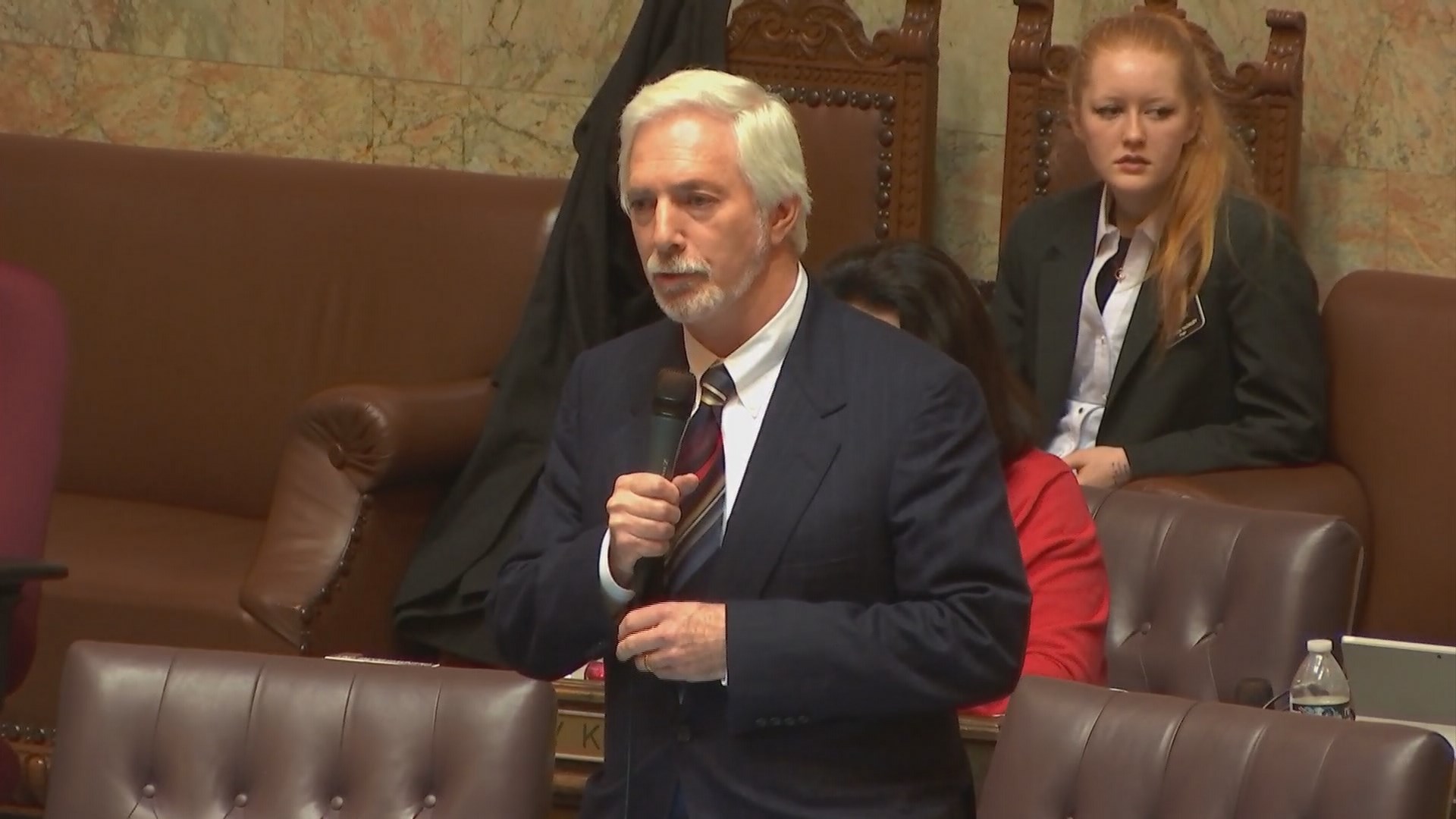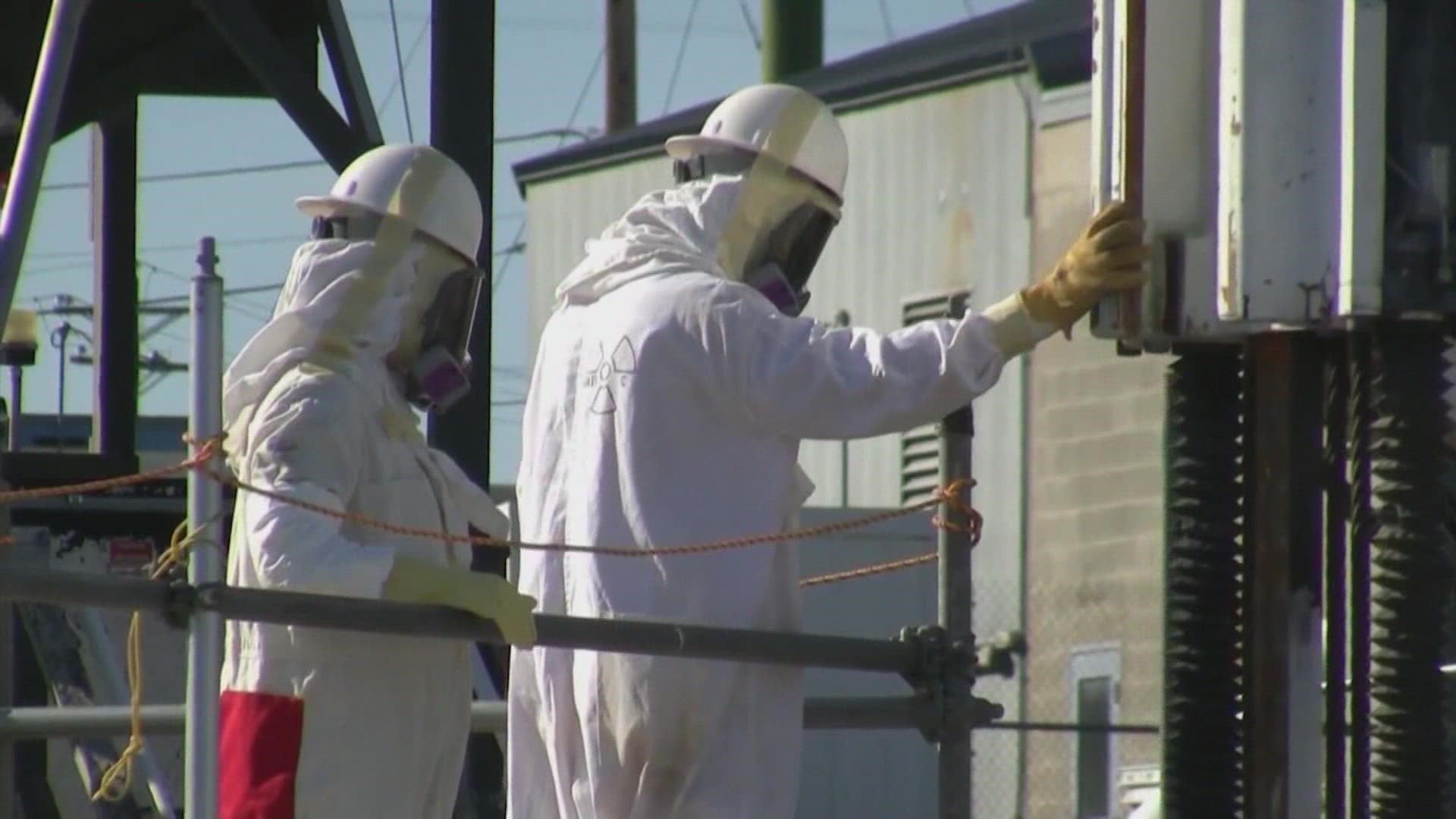OLYMPIA, Wash. - Members of the Washington state House of Representatives approved HB 1723 Thursday afternoon, which would help sick Hanford workers get their worker compensation claims approved.
The vote was 69 to 29, and now the matter goes to the Senate.
Prior to the vote, bill sponsor Rep. Larry Haler, R-Richland, urged his fellow House members to support the measure.
“I would hope that all of us would vote yes. Send a resounding emphasis to the Department of Energy as well as the Hanford contractors that this state backs the Hanford workers and wants to make sure they go home healthy and those who’ve been made ill (at the site) do get the adequate medical care,” said Haler.
HB 1723 aimed to help workers diagnosed with certain illnesses get the care and compensation they need. It would grant a presumption of occupational illness for Hanford workers, similar to what the legislature granted to firefighters in 1987. The illnesses included for Hanford workers include respiratory disease, heart problems experienced after an exposure to toxic chemicals, neurological diseases, such as toxic encephalopathy (occupational induced dementia), and certain cancers.
In a recent investigation, "Sick and Forgotten at Hanford," KING 5 has found that Hanford workers see their claims for compensation get rejected at a much higher rate compared with the rest of the state, even though Hanford is the most contaminated worksite in America. In addition, several studies dating back to 1992 show how hazardous conditions are for the Hanford workforce and that the site’s owner, the U.S. Department of Energy, is not doing enough to keep workers safe from hazards such as toxic chemical vapors.
KING 5 revealed that despite qualified medical diagnosis and histories of exposures to dangerous toxins used to make components for nuclear bombs, tactics are used to deny the workers claims, including submitting misinformation, incomplete information and sending them to psychiatrists and independent medical examiners who suspect them of faking their illnesses.
Penser North America is the contractor hired by the US Dept. of Energy to screen and manage claims and send information to medical examiners, but by law, only the state Dept. of Labor and Industries can accept or reject a claim.
Longtime Hanford advocate, Rep. Gerry Pollet, D-Seattle, also pushed fellow lawmakers to support the bill.
“And what this bill does is say if you have a highly qualified medical diagnosis, then you should entitled to worker compensation,” said Pollet. “This is about our state’s responsibility to these (people) - America’s nuclear veterans.”
The matter is now headed to the Senate Commerce, Labor and Sports Committee, where supporters hope committee chair Sen. Michael Baumgartner, R-Spokane, will grant a hearing.
“The nuclear veterans who have helped protect this nation in war and now in cleanup deserve justice. This legislature has shown bi-partisan support of correcting this gross negligence,” said Nickolas Bumpaous of UA Local Union 598. “I can only hope the Washington State Senate will allow this issue to be heard with the same bi-partisanship as the House. This isn’t politics. These are people.”
The federal government produced plutonium at Hanford for 45 years. The material fueled the nuclear bomb dropped on Nagasaki, Japan. After World War II, production focused on making plutonium for the country’s stockpile of nuclear weapons throughout the Cold War. Production stopped in 1989.
Since then, the mission has been exclusively focused on clean up. The effort has been hobbled by leaking nuclear waste tanks, a problematic safety culture and technical challenges that have prevented the implementation of technology to permanently dispose of 56 million gallons of liquid waste stored in aging underground tanks.


